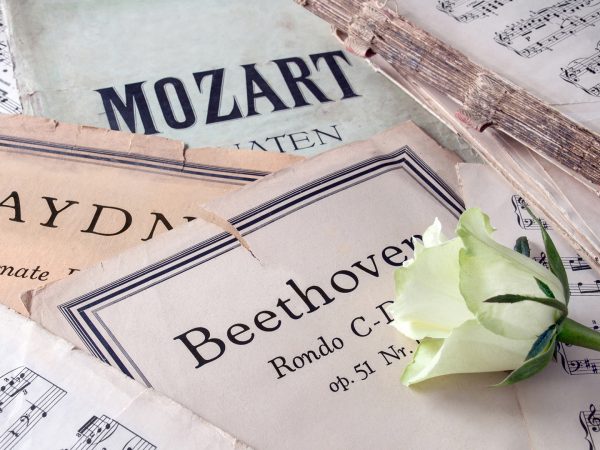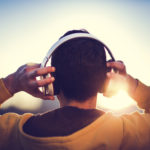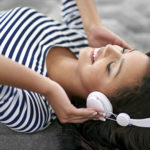Can Classical Music Reduce Seizures?
I’ve been told that listening to Mozart can reduce epileptic seizures. True?
Andrew Weil, M.D. | August 4, 2020

Apparently so. New research from Canada shows that listening to Mozart’s “Sonata for Two Pianos in D Major, K. 448” – reduces the frequency of seizures in some patients with epilepsy. According to study leader Marjan Rafiee, Ph.D., of the Krembil Brain Institute at Toronto Western Hospital, the new finding suggests that listening to Mozart daily “may be considered as a supplemental therapeutic option to reduce seizures in individuals with epilepsy.” She noted that the “promising effect of listening to Mozart” for epilepsy patients has been reported for the past 20 years.
Epileptic seizures are caused by sudden increases of electrical activity in specific areas of the brain, disrupting normal brain function. Individuals with epilepsy are often born with the disorder, but some develop it later in life (sometimes after a head injury). The seizures can range in severity from the barely noticeable (with only momentary lapses of awareness) to the dramatic (grand mal seizures with violent muscle contractions and loss of consciousness). Epilepsy is the most common serious neurological disorder in the world. It affects approximately 300,000 Canadians, 3.4 million Americans, and 50 million people worldwide.
For their year-long study of what is being termed the Mozart effect, the Canadian researchers recruited 13 patients. Half of them listened to the Mozart sonata once a day for three months, then switched to a scrambled version of the music for three months, which served as a spectrally similar but non-rhythmic control. The other half first listened to the scrambled version for three months and then to the Mozart sonata daily for another three months. All the patients kept diaries documenting the frequency of their seizures. They all also continued to take medications they had been prescribed earlier, often one or more anti-seizure drugs. The researchers noted that medications don’t effectively control seizures in 30 percent of epilepsy patients. Results showed a 35 percent reduction in seizures among the study participants who listened to Mozart daily for three months compared to those in the study who listened to the scrambled music control daily.
Study co-author, Taufik Valiante, M.D., Ph.D., a surgeon at the Krembil Brain Institute, noted that “like all research, ours raises a lot of questions that we are excited to continue to answer with further research.”
I should note that for some people with epilepsy, certain types of music can trigger seizures, a variation of the disease known as “musicogenic epilepsy.” According to the Epilepsy Society, some affected patients report seizures in response to specific types of music, such as jazz, classical, choral or popular. For others the trigger may be a particular instrument or even music of a particular composer. Seizures reportedly have been triggered by church bells, hymns, and even the French national anthem. Statistically, musicogenic epilepsy is thought to affect one in 10 million people, although some research suggests it may be more common.
Andrew Weil, M.D.
Source:
Marjan Rafiee et al “Daily listening to Mozart reduces seizures in individuals with epilepsy: A randomized control study,” Epilepsia Open, May 8, 2020, doi.org/10.1002/epd4.12400














